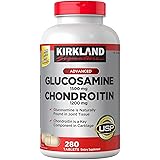Understanding Joint Pain and Stiffness
What Causes Joint Pain?
Joint pain can come from various places, and as someone who’s dealt with it, I can tell you it’s often a cocktail of factors. You might have arthritis, which is super common—it affects millions, and let me tell you, it doesn’t play nice. Then there’s tendonitis and bursitis, both of which can turn even the simplest of movements into a real struggle.
On top of that, remember injuries? Yeah, they can haunt us long after the initial incident. Sometimes, it’s just good old wear and tear from years of using those joints day in and day out. I’ve found the more I learn about what causes my aches, the better I can manage them. It’s almost like having an arsenal for when the pain decides to rear its ugly head.
How Does Stiffness Develop?
Stiffness can sneak up on you, especially in the morning or after prolonged inactivity. It’s like your body is rebelling against your need to be active. Often, it’s that gunky feeling in your joints after sitting at your desk for hours. This can also stem from arthritis or just tight muscles that haven’t had a good stretch.
Another thing I’ve figured out is that inflammation seems to be a key player here. It can make your joints feel like they’re stuck or difficult to move. Understanding where stiffness comes from is the first step to kicking it to the curb, trust me!
The Importance of Mobility
Staying mobile is crucial if you want to dodge severe joint issues later in life. I’ve learned that so many folks neglect their joint health until it’s too late. Movement keeps our joints lubricated and less prone to stiffness, which is like a lifesaver for me. Regular activity doesn’t have to mean a grueling gym session—think walking, swimming, or even yoga.
If you want to keep that pep in your step, adapt it to what feels good! Often, it’s the little things we incorporate into our daily routines that pay off the most. Just remember to listen to your body and find a balance between rest and activity.
Essential Natural Oils for Joint Health
Turmeric Oil
Ah, turmeric oil, my go-to for those days when my joints feel inflamed. This magical oil packs a punch with its anti-inflammatory properties due to its active compound, curcumin. No kidding—when I apply turmeric oil, it feels like I’m wrapping my joints in a warm hug.
The Best Joint Support (Naturally) Starts with Organic Nutritional Support!
Get 40% Off Here ...
What I love about turmeric oil is that it’s not just for topical application; you can also incorporate it into your diet. I’ve had turmeric lattes that have helped me feel a lot better overall. Just remember, you need to combine it with a bit of black pepper to absorb its benefits. That’s a kitchen hack that’s worth its weight in gold!
Eucalyptus Oil
Eucalyptus oil is another treasure in my cabinet. The fresh scent alone makes me feel invigorated, but it’s the anti-inflammatory and analgesic effects that keep me reaching for it. Whenever I feel my joints aching, I mix a few drops with a carrier oil and massage it in. The cooling sensation is heavenly.
I’ve even added it to a warm bath—trust me, it’s like a mini spa day at home. Eucalyptus not only eases joint pain but also serves as a great respiratory aid, so it’s like dual action. Win-win, right?
Ginger Oil
Ginger oil has a way of sneaking up on you. At first, I didn’t think much of it, but then I realized how powerful it is against inflammation! It’s really known for warming up the joints, which I appreciate, especially on chilly days.
Some folks drink ginger tea, but I personally love mixing the oil with a carrier oil for a soothing massage. The spicy, warm sensation can feel so good on those sore spots. It’s like treating yourself to a fancy spa without stepping foot outside!
Using Natural Oils Safely
Always Dilute Essential Oils
One thing I learned early on is the importance of dilution. Essential oils are potent, and using them directly on your skin isn’t always the best move. I always mix them with a carrier oil, like coconut or jojoba oil. It not only helps to spread it out but also prevents any skin irritation.
If you’re trying a new oil, do a patch test first before slathering it all over. Trust me, no one wants to deal with the aftermath of a bad reaction. I always start small; it’s better to be safe than sorry!
Consulting with a Healthcare Provider
Being naturally curious, I often delve into home remedies. However, I’ve learned it’s important to check in with healthcare professionals before diving in headfirst. They can offer insights specific to your health and ensure that the oils won’t interfere with any medications or conditions.
It’s easy to get excited about natural remedies, but balance is key. A professional can help create a plan that considers both your passions and your needs. They’ve been my compass on this journey!
Storage and Shelf Life
Natural oils aren’t cheap, let me tell you. So I learned that proper storage is vital to make them last. They should be kept in dark glass bottles away from heat and sunlight to maintain their potency. I keep mine in a cool, dark cabinet, and it’s done wonders for their shelf life.
Also, be mindful of their shelf life! Some oils stay potent for years; others can lose their effectiveness quickly. Checking for expiration dates is something I always do now—it’s part of my essential oil ritual.
Combining Oils with a Holistic Approach
Diet Matters
Let’s talk about food—what you eat can affect your joints just as much as oil can. I try to keep things diverse and colorful on my plate. Antioxidant-rich foods such as berries, leafy greens, and fatty fish can work wonders alongside your oils.
The Mediterranean diet has been a game changer for me. Incorporating anti-inflammatory foods alongside using natural oils has ramped up my joint health on a whole new level. Pairing them together creates a synergy that I didn’t expect!
Stay Active
Staying active doesn’t have to mean hitting the gym every day—sometimes, it’s about finding activities you love. I’ve taken up walking, and trust me, it does wonders for your joints. It’s like a gentle way to keep things moving without overloading your body. How great is that?
Strength training has been another big plus for my joint health. Creating a routine that strengthens the muscles around the joints can take off some of the pressure that causes pain—a total win for me!
Meditation and Mindfulness
I can’t stress enough how important it is to take care of your mental health. Meditation and mindfulness have helped me cope with pain better. Sometimes, it’s not just about the physical discomfort; it’s about how we approach it mentally. Staying calm can make managing pain much easier.
Incorporating a few minutes of meditation into my day allows me to reset. It’s part of my daily routine now, and I’ve seen such positive effects. Alongside my oils, it creates a holistic approach that truly feels transformative.
Conclusion
So there you have it! Natural oils have definitely made a difference in my life when it comes to managing joint pain and stiffness. Combining them with good habits and a holistic lifestyle has contributed significantly to my overall wellbeing. Remember, you’re not alone in this journey, and it’s about finding what works best for you. Here’s to healthier, happier joints!
FAQ
1. What are the best natural oils for joint pain?
The best natural oils for joint pain are turmeric oil, eucalyptus oil, and ginger oil. Each of these oils has unique anti-inflammatory properties that can help alleviate discomfort.
2. How do I use essential oils for stiffness?
You can use essential oils for stiffness by diluting them with a carrier oil and applying them directly to the affected area. Alternatively, adding a few drops to a warm bath can also provide relief.
3. Is it necessary to dilute essential oils?
Yes, it is essential to dilute essential oils before applying them to your skin to avoid irritation. Mixing with a carrier oil helps to safely deliver the benefits of the oil.
4. Can diet affect joint health?
Absolutely! A balanced diet rich in anti-inflammatory foods can complement the use of natural oils and significantly improve joint health.
5. Should I consult with a doctor before using natural oils?
Yes, consulting with a healthcare provider is a wise decision. They can provide personalized advice, especially if you are on medications or have existing health conditions.













